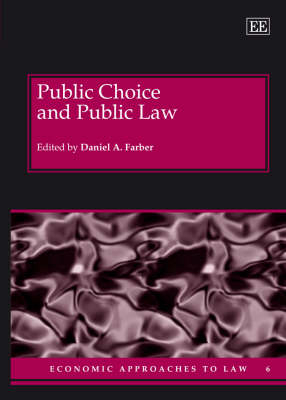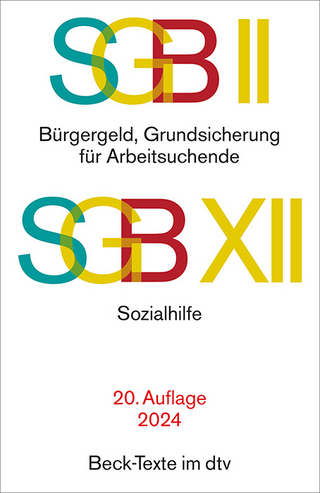
Public Choice and Public Law
Edward Elgar Publishing Ltd (Verlag)
978-1-84542-716-0 (ISBN)
Edited by Daniel A. Farber, Sho Sato Professor of Law, University of California, Berkeley, US
Contents:
Acknowledgements
Introduction Daniel A. Farber
PART IINTEREST GROUP THEORIES
1. George J. Stigler (1971), ‘The Theory of Economic Regulation’
2. William M. Landes and Richard A. Posner (1975), ’The Independent Judiciary in an Interest-Group Perspective’
3. Einer R. Elhauge (1991), ‘Does Interest Group Theory Justify More Intrusive Judicial Review?’
PART IIINSTITUTIONALIST AND AGENCY THEORIES
4. Tom Ginsburg (2002), ‘Ways of Criticizing Public Choice: The Uses of Empiricism and Theory in Legal Scholarship’
5. Keith Krehbiel (2004), ‘Legislative Organization’
6. Daryl J. Levinson (2005), ‘Empire-Building Government in Constitutional Law’
PART IIIPUBLIC CHOICE AND ADMINISTRATIVE LAW
7. Jerry L. Mashaw (1985), ‘Prodelegation: Why Administrators Should Make Political Decisions’
8. McNollgast (1999), ‘The Political Origins of the Administrative Procedure Act’
9. Terry M. Moe and William G. Howell (1999), ‘The Presidential Power of Unilateral Action’
PART IVPUBLIC CHOICE AND STATUTORY INTERPRETATION
10. Frank H. Easterbrook (1983), ‘Statutes’ Domains’
11. William N. Eskridge, Jr. (1988), ‘Politics Without Romance: Implications of Public Choice Theory for Statutory Interpretation’
12. Kenneth A. Shepsle (1992), ‘Congress Is a “They,” Not an “It”: Legislative Intent as Oxymoron’
13. McNollgast (1994), ‘Legislative Intent: The Use of Positive Political Theory in Statutory Interpretation’
Name Index
| Reihe/Serie | Economic Approaches to Law series |
|---|---|
| Verlagsort | Cheltenham |
| Sprache | englisch |
| Maße | 169 x 244 mm |
| Themenwelt | Recht / Steuern ► Arbeits- / Sozialrecht ► Sozialrecht |
| Recht / Steuern ► EU / Internationales Recht | |
| Sozialwissenschaften ► Politik / Verwaltung ► Politische Systeme | |
| Sozialwissenschaften ► Politik / Verwaltung ► Staat / Verwaltung | |
| ISBN-10 | 1-84542-716-5 / 1845427165 |
| ISBN-13 | 978-1-84542-716-0 / 9781845427160 |
| Zustand | Neuware |
| Haben Sie eine Frage zum Produkt? |
aus dem Bereich


